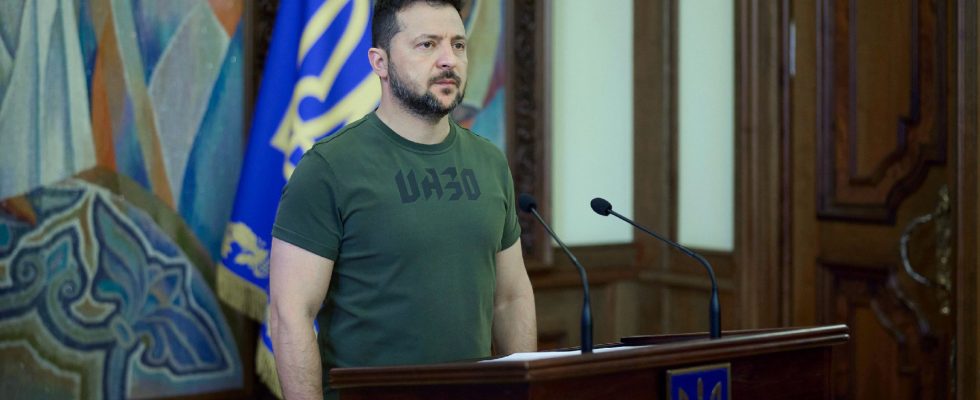Is this the first sign of “great fatigue” on the Western side regarding a war deemed too long? There is talk, for certain allies, of stopping their military support. “Not one more ammunition” for Kiev, insisted populist Robert Fico, whose party (SMER) won the elections in Slovakia (23.3% of the vote) – he has two weeks to form a coalition government.
In Poland too: Prime Minister Mateusz Morawiecki, whose ultraconservative party is leading the polls before the October 15 elections, announced that Warsaw would no longer supply weapons. In the midst of a rearmament phase (more than 2,500 tanks and hundreds of artillery pieces ordered from South Korea and the United States), Poland has only promised to honor the contracts already concluded with Kiev.
These two countries could join an “anti-weapons front” with Viktor Orban’s Hungary, which has always refrained from sending lethal equipment. The latter already does not hesitate to slow down the European Union’s projects to sustain the supply of arms to Ukraine. With the objective of removing a Hungarian bank from the list of “war sponsors” established by Kiev, Budapest said it was ready to oppose the creation of a long-term fund of 20 billion euros to supply the Ukrainian army, Politico reported.
The 2024 American presidential election, a pivotal moment
More serious for Ukraine: the end of aid is no longer taboo in the United States, whose weapons and information provided to kyiv changed the course of the war. Even though President Joe Biden wanted to be reassuring for the future, the provisional agreement – it is valid for 45 days – to avoid a budgetary paralysis of the federal administration (“shutdown”) excluded any additional military aid.
“The Ukrainians have reason to be worried, because the Americans are less and less in favor of helping them,” points out François Heisbourg, of the Foundation for Strategic Research. 48% of them believe that more should be done for Ukraine, according to a CNN/SSRS poll released at the beginning of August. In February 2022, 62% of them thought this. Now, 55% believe that Congress should not authorize additional funding.
Favorite of the Republican camp despite several court summons, Biden’s predecessor, Donald Trump, has already proposed to “end the war in 24 hours” if he wins the 2024 presidential election: “I will say to Zelensky, enough is enough, he we need to find an agreement.” A nightmare scenario for the Ukrainian president, who must still, after more than 500 days of war, remind his allies: “Our victory depends directly on your cooperation.”
